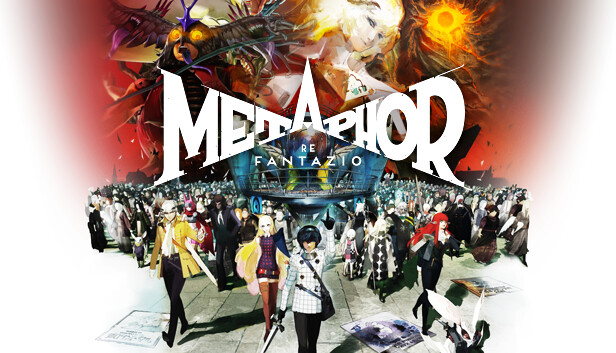In a world where players take immense pride in discovering clever or “broken” strategies to defeat tough enemies in RPGs, the developers behind Metaphor: ReFantazio are turning the conversation on its head. What might feel like exploiting a game mechanic or outsmarting the designers is, in many cases, entirely intentional.
During a recent interview, Kenichi Goto, Combat Designer for Metaphor: ReFantazio, dropped a surprising truth: the seemingly overpowered strategies that some players think they “discovered” are often deliberately left in the game. These mechanics aren’t oversights—they’re features designed to reward experimentation, creativity, and mastery of the game’s complex systems.

“We Deliberately Leave Such Mechanics” – The Developer’s Perspective
Kenichi Goto explained that many players proudly share tactics they believe bypass the intended challenge of boss fights. Comments like “I found a way the developers didn’t plan for” are common across forums and social media.
However, Goto clarifies:
“We deliberately leave such mechanics—they make the battle more interesting.”
This statement underscores a philosophy of trust in the player. The development team doesn’t want to restrict players to a single solution. Instead, they craft an environment where smart, creative gameplay is rewarded, not punished.
Player Ingenuity is a Feature, Not a Flaw
The culture of RPGs has long celebrated the “one-shot builds,” damage-over-time stackers, and unusual party combinations that allow a player to overcome a massive threat in seconds. While these may appear to be exploits, in Metaphor: ReFantazio, they are intentional elements of design.
This reflects a broader trend in modern RPG development:
-
Build freedom: Encouraging players to forge unique paths.
-
Non-linear problem solving: Multiple solutions to boss fights.
-
System mastery: Deep mechanics that reward those who understand them fully.
The approach makes the experience more dynamic and replayable, offering something new even on a second or third run.
Interface Design with Hidden Depths
The conversation didn’t end with combat. Interface Designer Koji Ise also emphasized that every element of the user interface in Metaphor: ReFantazio was chosen with purpose and precision.
“Each interface element has meaning and was selected with calculation,” Ise said.
He encouraged players to study the UI, suggesting that deeper mechanics and strategic hints can be uncovered just by observing the layout, icons, and data presentation. The UI isn’t just functional—it’s an extension of the gameplay itself.
When Players Truly Surprise the Developers
Despite the calculated design, developers still find joy in being genuinely surprised by player creativity. Goto admits:
“Sometimes, players do find loopholes the team hadn’t thought of. These are some of the most exciting moments in development.”
This openness to surprise and unpredictability shows a humble and player-centric development mindset. It also reinforces the idea that games are collaborative experiences, shaped as much by those who play them as by those who make them.
The Role of Player Expression in Metaphor: ReFantazio
What’s striking about this development approach is its respect for player expression. Rather than railroading users into specific strategies, Metaphor: ReFantazio supports:
-
Customizable builds
-
Diverse combat styles
-
Flexible party configurations
-
Hidden synergies and combos
The result is a game that feels alive, constantly evolving as players unearth new tactics and unconventional methods.
Lessons for RPG Fans: Read Between the Lines
For fans of deep RPGs like Persona, Shin Megami Tensei, or Final Fantasy Tactics, the design philosophy of Metaphor: ReFantazio offers a refreshing twist. It encourages players to:
-
Think creatively
-
Experiment with systems
-
Trust their instincts
-
Look beyond what seems obvious
The developers aren’t trying to “trick” you—they’re inviting you to play with the game, not just through it.




